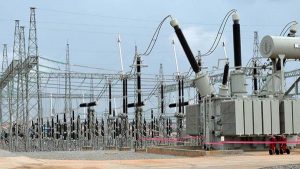NNPC delays crude oil price offer, in talks with buyers

Due to the brent crude, for June delivery was down $1.76, or 8.2 per cent, at $19.68 a barrel, following its 23.7per cent weekly drop, the Nigerian Petroleum Corporation (NNPC) has delayed releasing its future oil export plans as it negotiates with local companies and international majors about how to cut output in line with a global deal on production curbs traders have said.
Official selling prices (OSPs) for Nigerian oil, usually issued in the second or third week of each month, had still not been issued on Monday.
The global supply deal, agreed by the OPEC+ group of oil producers, is due to go into effect on May 1. Traders expect the May OSPs to fall below April’s record lows published by Nigeria National Petroleum Corporation (NNPC).
Traders of Nigerian oil told Reuters that Nigeria, an OPEC member, had revised its May programmes for oil cargoes and would also have to lower its output in June, based on the OPEC+ deal.

“May cargoes will get delayed and new June cargoes may be relatively few,” one of the sources said. The Organization of the Petroleum Exporting Countries, Russia and other allied producers agreed to cut their combined output by 9.7 million barrels per day, or each reducing its production by more than 20%.
The first round of cuts will run in May and June. Reductions will be less severe after that. “The NNPC is working out the cuts for the international oil companies. That’s why the programme for June and OSP for May is yet to come out,” another trading source said.
“The market knows that the storage problem remains and we are on a calculated path to reach tank tops in weeks,” wrote Bjornar Tonhaugen, head of oil markets at Rystad Energy in a daily research note.
Prices can only decline when producers have nowhere to store oil in the near term, he wrote.

The fall for oil comes as a pact by the Organisation of the Petroleum Exporting Countries has failed to quell rampant worries about too much supply and a shrinking number of facilities to store the asset.
Higher prices for contracts for oil in later months also has consequently encouraged further storing of crude and amplified pressures on its price.
OPEC and allies, including Russia, making up a group known as OPEC+, are slated to commence cuts equating to 9.7 million a barrel a day, about 13 per cent of global production, on May 1 through June, but that is viewed by experts as doing little to address a global glut of historic proportions. Adding to the problems of crude has been the demand shock resulting from the outbreak of the novel strain of coronavirus that has brought global economies to a near standstill, delivering a gut punch to oil producers worldwide.
According to reports, countries including Kuwait also have started to cut production ahead of the start of the May 1 date for agreed-upon cuts to start.
Meanwhile, U.S. shale producers have continued shutting down oil-drilling rigs. Baker Hughes on Friday reported that the number of active U.S. rigs drilling for oil dropped by 60 to 378 this week.
That marked a sixth straight weekly decline and implied further declines in domestic oil output. Liquidity in the nearby WTI futures market remains a problem with the United States Oil Fund LP rolling into deferred contracts following the disaster” with the May WTI contract which expired last week at a negative price, said Marshall Steeves, energy markets analyst at IHS Markit.









